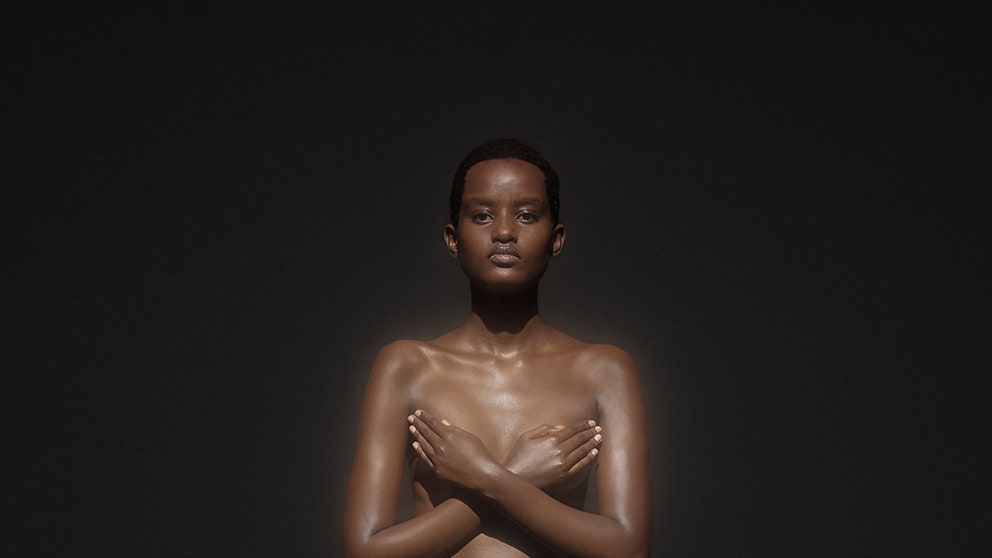In Tokyo’s diverse medley of designers, Takeshi Kitazawa is something of an outlier, operating on a philosophical plane few others tread. For the past two seasons he has worked with the theme of Self-Portrait, reflecting deeply on the incompatible nature of reflection and self-awareness. “When we look in the mirror every day, we recreate ourselves over and over again,” he said during a Zoom call. “Your haircut may look the same, but maybe one hair will be different.”
This time he had taken Stéphane Mallarmé’s groundbreaking poem, ‘Un coup de dés jamais n’abolira le hasard’ (‘A roll of the dice will never eliminate chance’) as inspiration. “Words change a little bit between when they’re in your head and when you say them,” says Kitazawa. “And I was encouraged by the poem because it is about adjustments, so that even if things look the same, they are not the same at all.”
It makes more sense when you see the clothes. Kitazawa designs with extraordinary sensitivity, updating his monochromatic tailoring every season with the slightest changes, changing the pattern of a jacket here or using a new fabric there. It’s a meditative, slower-paced approach to fashion (building on last season, he’ll only be making a very limited range of ready-to-wear) that feels refreshing in the industry’s increasingly frenetic and commercialized landscape. For example, inky black pants from his previous collection returned as the first look of this one, but they’re not quite the same.
A winking sexuality also often appears in Kitazawa’s work, and this season it was reflected in metal nipple brooches (cast from real life!) on the cool-cut jackets, and in the barely visible sheer tulle that both covered and revealed the body underneath . , and on which words from Mallarmé’s poem were strung. Seen from afar, the model in Look 5 is wearing what appears to be a tie, but upon closer inspection her skin contrasts with the straight lines of the white shirt. “Jackets are meant to cover your body, so I purposely tried to bring out the details of the person inside,” he explained.
Kitazawa describes DressedUndressed’s aesthetic as mukishitsu, a Japanese word that is difficult to translate into English, but can mean inorganic or cold artificial. (Kitazawa herself, on the other hand, is an extraordinarily warm lover of nature.) It is perhaps a good example of a reflection that can come close, but never quite touch: whether in the native language or the foreign language; from human designer to inhuman creation; from the person we face in front of the mirror to the terminally unattainable self out there.





